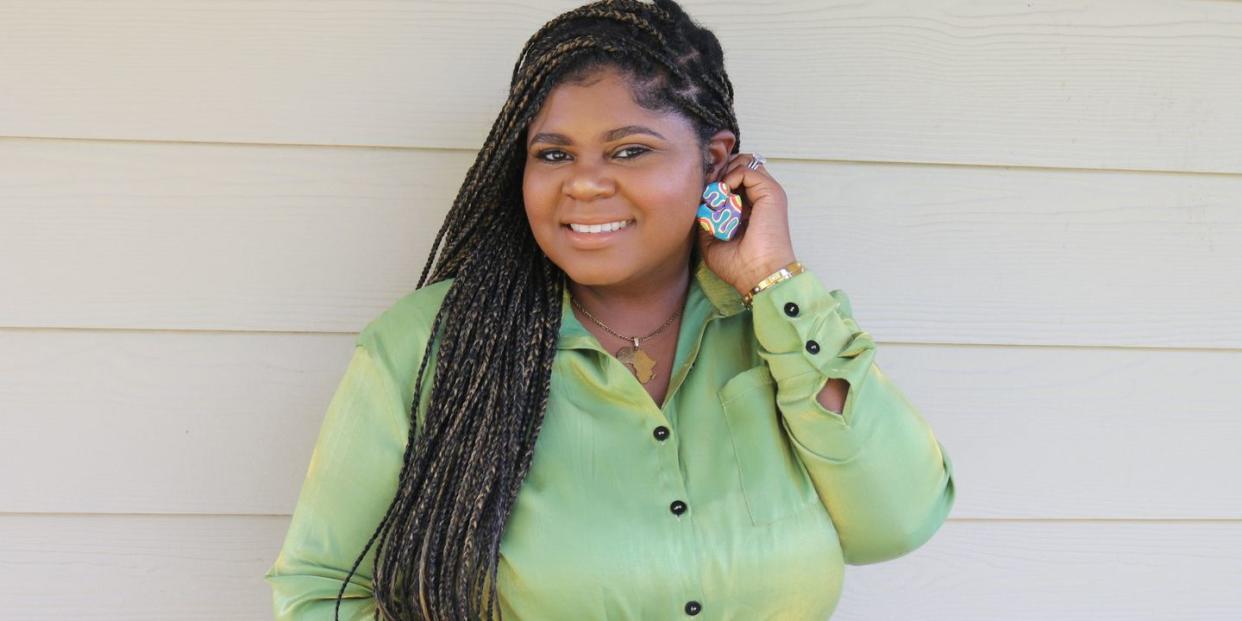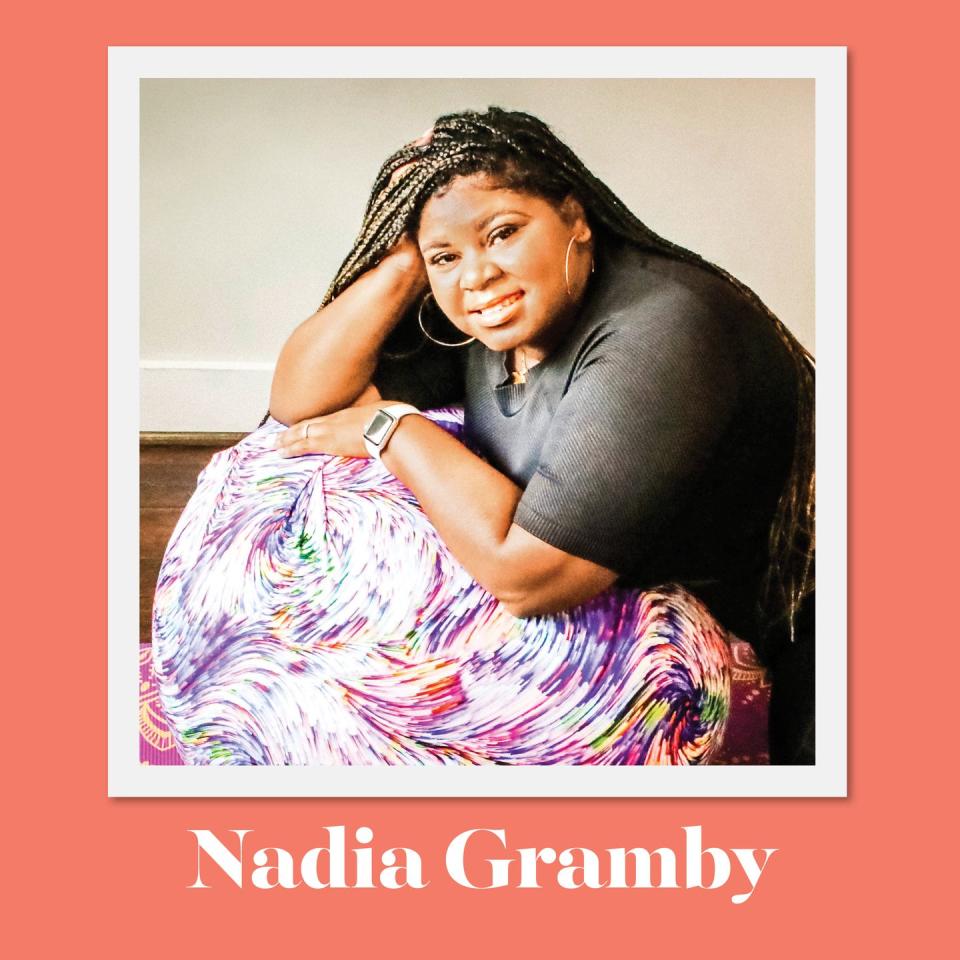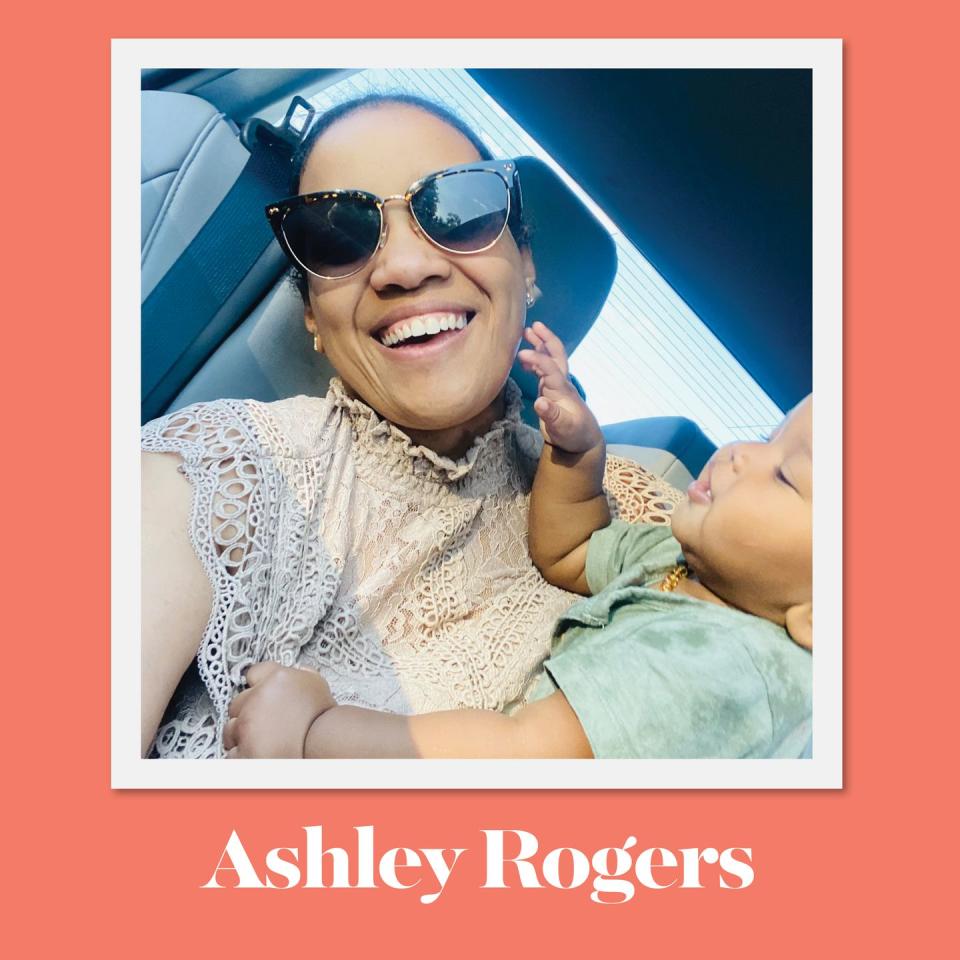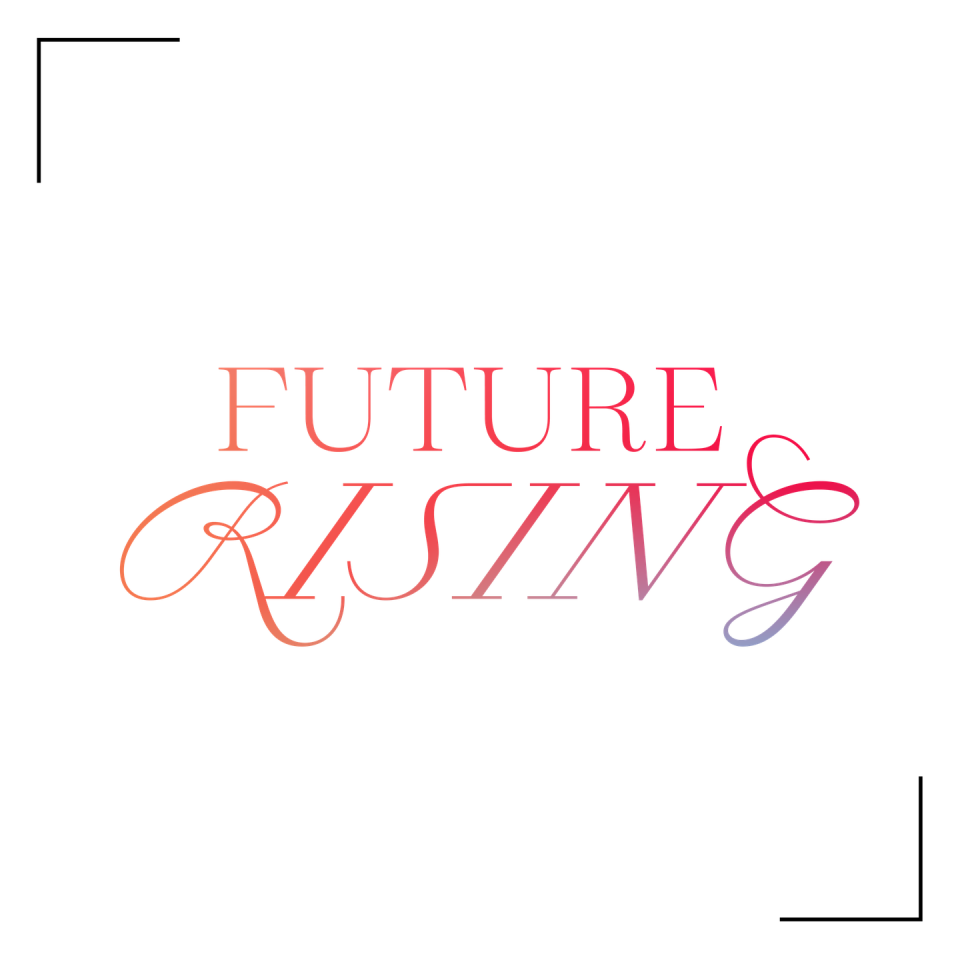Why Black Doulas Mean Better Births for Black Women

Ashley Rogers didn't expect to have a cesarean birth. Her pregnancy had been uneventful, and she had been planning a natural birth after her first child had been born via C-section years earlier. So in July 2021, when doctors told her a C-section would be the safest way to deliver, “I was freaking out,” Ashley recalls. Luckily, in addition to her husband Marley, Ashley had her doula, Nadia Gramby by her side.
“I remember lying on the table and Nadia coming over. She whispered, ‘It’s going to be OK. You got this.’ And I was totally fine after that!” says Ashley, who gave birth to her son Makaio that day.
For Black birth workers like Nadia, a doula based in Birmingham, AL, it’s moments like these that crystallize the decision to dedicate their lives to caring not just for expectant mothers, but for expectant Black mothers.
The United States has the highest maternal death rate of any developed nation in the world, and while rates are declining in most countries, the numbers have been steadily rising in the U.S. over the past three decades. For Black women, the statistics are even more daunting. In 2020, the maternal mortality rate for non-Hispanic Black women was 55.3 deaths per 100,000 live births—nearly three times the rate for non-Hispanic white women.
“I was called to this by God,” Nadia says. After working in human resources for 15 years, she became a certified doula five years ago. “I never looked back,” she says.
Today Nadia is a birth and postpartum doula and childbirth educator, meaning she offers her clients emotional support before, during and after birth as well as childbirth education, which makes them aware of their rights in the birth room and beyond. She’s also studying to become a certified professional midwife, which would enable her to manage the medical care of mom and baby before and during birth.
Additionally, Nadia serves as a mentor for other doulas, helping them with the business side of birth work and striving to fill the gaps in traditional doula training. “Most of the things that are happening in our communities are not addressed in a lot of doula trainings,” Nadia says. “They give you these scenarios of people who have these perfectly put-together families. But I meet people who don’t have support systems already in place.”
For Nadia, being a childbirth educator doesn’t begin and end with her clients and mentees. She finds herself answering questions about childbirth even when she’s at the nail salon. And she typically shares information via social media most days.
“It’s another avenue for my clients to get information but also for people who may never meet me or who live in other countries to get information that is free,” Nadia says. “Sometimes people can’t afford a doula. Social media makes it more accessible, and you can go back to that information as many times as you’d like. You can pull it up while you’re in labor.”
It was through Facebook that Ashley connected with Nadia the summer before Makaio’s birth.
“With my first experience, I didn’t have a lot of say so,” Ashley explains about why she decided to bring a doula into her second labor. She was also haunted by stories and statistics of Black women suffering fatal complications during pregnancy or delivery. “Seeing what other Black women went through,” she says, “I wanted to have someone to be there with me.”
Nadia says one of her top priorities is teaching clients how to speak up for themselves throughout their pregnancies. When Ashley was unhappy with her healthcare provider, Nadia helped her find a new one. “You can leave your doctor at any time,” Nadia says, adding that this is something many expectant parents don’t know.
Doulas can support the couple throughout the process
Nadia stresses that even pregnant people who have the support of a doula need support at home, too. “A doula doesn’t come in to replace a partner or a husband,” she says. Ashley’s husband and Nadia worked as a team throughout her pregnancy to ensure she was eating properly and drinking enough water. He also helped Ashley with the exercises Nadia wanted her to do to prepare for labor and delivery.
“She really involved my husband, which he really appreciated,” Ashley says. “She brought us together and was that glue.”
When it was time for labor and delivery, Nadia was there to speak up for Ashley in the birth room. “I didn’t have to do a lot of the communicating, and that helped me because I was already nervous,” Ashley says. Nadia used essential oils and music to help quell Ashley’s anxiety during labor. She even encouraged her to dance with her husband. And Nadia’s calm tone and demeanor helped when Ashley's natural birth plan didn’t go as expected.
Black doulas as advocates
In 2020, the CDC launched Hear Her, a campaign aimed at raising awareness of urgent maternal warning signs during and after pregnancy: these include dizziness or fainting, changes in vision and extreme swelling in the hands or face, among others. The program also seeks to improve communication between pregnant and postpartum patients and their health care providers, which Nadia views as part of her job as well.
“A lot of what I do is encouraging people to stand in their truth about what they need,” Nadia explains. She adds that this can be especially difficult for Black women. “When you have been told not to speak up and you don’t want to be viewed as the angry Black person, sometimes you push down your feelings, and that carries over into the birth room,” she says.
In 2015, the American Nurses Association introduced a new standard called “culturally congruent practice,” a model to be followed by health care professionals that emphasizes a community’s inherent heritage and acknowledges the historical trauma that may affect health outcomes. The ANA has reported that it believes nursing practices adhering to this standard can improve health care access, promote positive outcomes and reduce health disparities in vulnerable populations such as the LGBTQ+ and BIPOC communities, among others.
Nadia, however, doesn’t believe that’s enough. She believes more Black birth workers are needed.
“There is a difference between cultural competency and actually being a part of the culture,” Nadia says. Having someone who looks like you in the delivery room makes a difference, she adds: “It’s a necessity; it’s not a luxury. I don’t advise any Black woman to have a baby—especially in a hospital—without a doula, specifically a Black doula.”
That said, Nadia believes it takes a village to lower the Black maternal mortality rates. “One of the challenges for doulas and midwives is that a lot of the responsibility has been placed on us,” she says, adding that community members need to get involved, too.
To do that, Nadia suggests informing the pregnant people in your community of their options and rights and empowering them to be their own advocates. “Doulas and midwives," she says, "can’t do it all.”

Nadia Gramby
What gives you hope ?
This is going to sound so cliché, but the short answer is God.
What’s in store for your future?
I foresee witnessing so many miracles in my business and in the lives that I will be a part of. I am focused on building the right relationships so that I will have everything that I need. When I have everything that I need, I can give everything that I’m supposed to give to the people that are called to me. So, what I see in my future is being in alignment with God’s will for my life.
Why is thinking about the future important?
You need to know what you’re planning for. Everything that I’m doing now is to build my future. My future says that I will have birth centers, a large staff and that I will train other midwives. I need those doulas and trainees to be a part of my journey.

Ashley Rogers
What gives you hope?
Because of social media and seeing so many Black advocates for doulas now, I do feel like there is hope for my daughter and even my son, that they will know that there are options out there for you to have that support. There is someone who will advocate for you.
What’s in store for your future?
I just passed my real estate exam. I wanted to always have a space where I could control my schedule to be there for my kids and be able to be more involved with them.
Why is thinking about the future important?
For the generation that’s behind us, my kids and other kids that’s coming, I feel like it’s important to create a platform for them and give them opportunities.

This story was created as part of Future Rising in partnership with Lexus. Future Rising is a series running across Hearst Magazines to celebrate the profound impact of Black culture on American life, and to spotlight some of the most dynamic voices of our time. Go to oprahdaily.com/futurerising for the complete portfolio.
You Might Also Like

